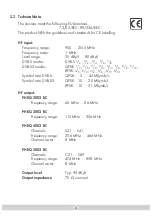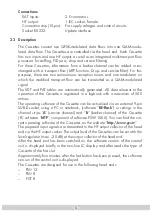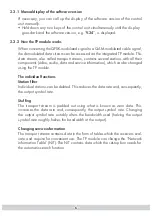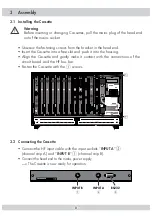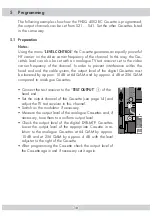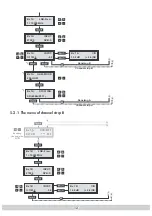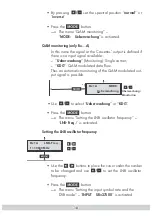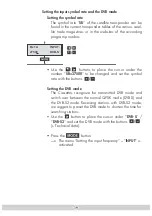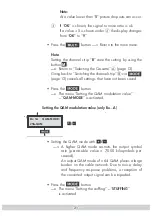
- 6 -
- 6 -
2.3.1 Manual display of the software version
If necessary, you can call up the display of the software version of the control
unit manually:
• Hold down any two keys of the control unit simultaneously until the display
goes dark and the software version, e.g. “
V.34
”, is displayed.
2.3.2 How the TP module works
When converting the QPSK-modulated signal to a QAM-modulated cable signal,
the demodulated data stream can be accessed via the integrated TP module. This
data stream, also called transport stream, contains several stations with all their
components (video, audio, data and service information), which can be changed
using the TP module.
The individual functions
Station filter
Individual stations can be deleted. This reduces the data rate and, consequently,
the output symbol rate.
Stuffing
The transport stream is padded out using what is known as zero data. This
increases the data rate and, consequently, the output symbol rate. Changing
the output symbol rate suitably alters the bandwidth used (halving the output
symbol rate roughly halves the bandwidth at the output).
Changing service information
The transport stream contains data in the form of tables which the receivers eval-
uate and require for convenient use. The TP module can change the “Network
Information Table” (NIT). The NIT contains data which the set-top box needs for
the automatic search function.




